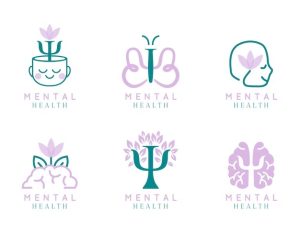
Retirement is often seen as a time of relaxation and leisure, but for many retirees, it can also be a time of uncertainty and loss of purpose.
After years of working and building a career, the transition to retirement can be challenging, leaving many retirees feeling unfulfilled and lacking direction.
Retirement can be a blissful time of freedom and relaxation, but for some, it can lead to feelings of isolation and loneliness.
When it comes to retirement, people often stress about financial concerns, health problems, and caregiving, but almost no one talks about the importance of developing new sources of meaning and purpose.
According to the 85-year-old Harvard Study of Adult Development study on happiness, the number one challenge people face in retirement is the inability to replace the social connections that were once sustained by work.
The researchers tracked the lives of 724 people all over the world for over eight decades to find out what made them happy in life, especially in retirement.
Researchers studied the participants’ health trajectories, their triumphs and failures in careers and marriage, and their relationships with family, friends, and community.
The study found that people who fare the best and find purpose in retirement find ways to cultivate connections with others.
Therefore, it is important to invest in friendships and community outside of work to ensure a happy and fulfilling retirement.
Retirees Don’t Miss Work, They Miss the People
Positive relationships and social connections are crucial for overall happiness and well-being, and they help people live longer and healthier lives.
Research has also shown that social isolation and loneliness are linked to an increased risk of depression, cognitive decline, and premature death.
Therefore, it’s essential to address the social aspects of retirement to maintain a healthy and happy life.
It’s not surprising that retirees struggle to replace the social connections they had at work.
The workplace is often a hub for social interaction, where people spend a significant amount of their waking hours.
Coworkers become friends, and work-related activities provide a sense of purpose and belonging.
In contrast, retirement can feel like a sudden loss of identity and purpose for many people.
Searching for Meaning

In the 1950s, developmental psychologist Erik Erikson proposed a psychosocial theory that describes eight stages of development throughout a person’s life.
He believed that each stage of development was characterized by a particular conflict or struggle, which must be successfully resolved in order to successfully progress to the next stage.
Many people are either approaching or beginning retirement during the seventh stage, Generativity vs. Stagnation, which takes place during middle adulthood (40-65 years old).
During this stage, individuals are developing a sense of purpose and still contributing to society. If they are not able to do so, they may experience stagnation.
Embracing the Final Stage
Most all retired people are living in Erikson’s final stage, Integrity vs. Despair, which occurs during late adulthood (65+ years old).
During this stage, individuals are reflecting on their life and assessing whether it has been meaningful. If they are unable to do so, they may experience despair.
In this stage, individuals must come to terms with the accomplishments and failures of their life and develop a sense of integrity or despair.
According to Erikson, individuals who have a sense of integrity are able to reflect on their lives and feel a sense of satisfaction and accomplishment.
On the other hand, those who experience despair are left feeling unfulfilled and regretful of the choices they have made.
Retirees can benefit from understanding this stage and what it means for their lives.
Achieving Integrity in Retirement

It is important to reflect on one’s life and look back on successes and failures in order to develop a sense of integrity and purpose in retirement.
This can be done in a variety of ways such as journaling, talking to friends and family, and engaging in activities that evoke a sense of accomplishment.
Additionally, it can be helpful to focus on the present moment and the opportunities that still exist – It’s important to remember that life is still full of possibilities and to make the most of them.
Furthermore, retirees should strive to find a balance between reflecting on the past and focusing on the present.
Too much focus on the past can lead to feelings of regret and despair, while too much focus on the present can lead to feeling unfulfilled and unaccomplished – a healthy balance between the two is important for a sense of integrity.
It is important to note that individuals may experience a range of emotions and experiences during each stage and that successful resolution of each stage is necessary for successful progression through the stages.
What Can Retirees Do to Adjust & Find Happiness?
Experts say there are many ways to feel fulfilled, adjust to life, improve overall well-being, and find purpose in retirement, including:
- Joining social groups or clubs: Retirement can provide an opportunity to explore new hobbies and interests, and joining social groups or clubs can be a great way to meet new people with similar interests. Whether it’s joining a book club, a gardening group, or a religious organization, being part of a community can provide a sense of belonging and purpose.
- Staying connected with former coworkers: Retirees can stay connected with former coworkers through social media, email, or phone calls. Reaching out to colleagues for a coffee or lunch date can be a great way to catch up and maintain social connections. These meetings provide opportunities for catching up on old times and building a sense of camaraderie that they once had in the workplace.
- Staying engaged through work: Many retirees choose to stay productive by making money on the side, either through part-time work or starting their own business. This can provide a sense of accomplishment as well as purpose in retirement while also providing financial benefits.
- Volunteering: Helping out is a fantastic way to stay active, give back to the community, and meet new people. Retirees can explore opportunities to volunteer at local charities, senior centers, museums, historical sites, non-profits, schools, or hospitals.
- Attending community events: Many communities have events and activities that are open to the public, such as concerts, festivals, and farmer’s markets. Attending these events can be a great way to get out of the house, explore new places, and meet new people.
- Pursuing a hobby or passion: Retirement provides an excellent opportunity for retirees to pursue hobbies or passions they may not have had time for while working. Whether it’s painting, writing, gardening, or photography, engaging in activities that bring joy and fulfillment can provide a sense of purpose and accomplishment.
- Learning something new: Retirement provides the perfect opportunity to experience something new, whether it’s learning a language, a musical instrument, or a new skill. Many community colleges and universities offer classes specifically designed for retirees, providing a social and intellectual outlet.
- Traveling: Retirement is an excellent time to travel and explore new places. Whether it’s a road trip across the US or a European adventure, traveling can provide new experiences and perspectives, expanding one’s horizons and creating lasting memories.
- Staying active: Staying active is essential for overall health and well-being, and retirement provides more opportunities for physical activity. From walking and hiking to yoga and swimming, staying active can help retirees maintain their health, improve their mood, and reduce the risk of chronic illness.
- Seeking support: Retirement can be a challenging time, and it’s essential to seek support when needed. Retirees can talk to family and friends about their feelings and seek professional help if necessary. Many retirees also find professional therapy or counseling helpful in adjusting to the significant life transition of retirement.
Retirement can be an exciting and well-deserved break from the hustle and bustle of work life and it can be easy to slip into blissful isolation, but remember, staying connected to the outside world is key.
Staying Connected with the Community: Resources Where You Can Help
- Volunteer Match is a global website that helps seniors find a plethora of local and virtual volunteer opportunities by entering their location.
- The American Association of Retired Peoples (AARP) also has a large database of volunteering opportunities across America as well as virtually for those abroad.
- Additionally, there are several organizations that offer global retiree volunteer opportunities, such as Koya Leadership Partners, Senior Corps, and The Peace Corps.
- Create the Good is another website that offers a variety of volunteer opportunities for retirees.
- Forbes also provides a list of 11 meaningful ways older adults can volunteer.
###
The views expressed in this article are not to be construed as personal advice. You should contact a qualified and ideally regulated adviser in order to obtain up to date personal advice with regard to your own personal circumstances. If you do not then you are acting under your own authority and deemed “execution only”. The author does not accept any liability for people acting without personalised advice, who base a decision on views expressed in this generic article. Where this article is dated then it is based on legislation as of the date. Legislation changes but articles are rarely updated, although sometimes a new article is written; so, please check for later articles or changes in legislation on official government websites, as this article should not be relied on in isolation.
Related Stories:
- Why Retirees Change Retirement Plans
- All Ages Benefit from Post-Pandemic Workforce Changes
- Fear of Retirement
- Fear of Retirement
- More Gen X and Boomers are Living Solo
Share this story


